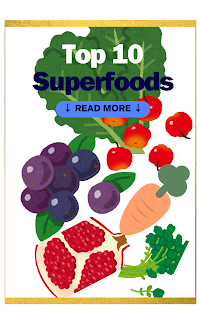Chronic, low‑grade inflammation is increasingly recognized as a driving factor behind many modern health conditions, including cardiovascular disease, type 2 diabetes, autoimmune disorders, and cognitive decline. While acute inflammation is a protective, short‑term immune response, chronic inflammation persists silently and can damage tissues over time. Lifestyle choices, especially nutrition and movement, play a significant role in modulating inflammatory pathways. This article outlines evidence‑based habits that support a lower‑inflammation lifestyle.
Understanding Chronic Inflammation
Inflammation is the body’s natural defense mechanism, designed to protect against injury, infection, and stress. However, when inflammatory processes remain activated long‑term, they can contribute to disease progression. Harvard Health notes that chronic inflammation can damage healthy tissues and is linked to conditions such as heart disease, stroke, diabetes, cancer, and dementia (Harvard Health Publishing, 2025). Johns Hopkins Medicine similarly emphasizes that systemic inflammation can persist for months or years, increasing disease risk (Johns Hopkins Medicine, n.d.).
Lifestyle factors including diet quality, physical activity, stress, and sleep, are among the most influential contributors to chronic inflammation.
1. Inflammatory Foods to Limit
Certain dietary patterns are strongly associated with elevated inflammatory markers such as C‑reactive protein (CRP) and interleukin‑6 (IL‑6). Research consistently shows that diets high in refined carbohydrates, added sugars, and processed fats promote systemic inflammation.
Foods to Limit
- Ultra‑processed snacks (chips, pastries, packaged sweets)
- Sugar‑sweetened beverages
- Processed meats (bacon, sausage, deli meats)
- Refined grains (white bread, white pasta)
- Excessive alcohol
A systematic review published in BMJ Nutrition, Prevention & Health found that anti‑inflammatory dietary patterns improve health‑related quality of life in adults with chronic disease, while pro‑inflammatory diets worsen inflammatory biomarkers (Law et al., 2025). Ultra‑processed foods, in particular, are linked to higher CRP levels and metabolic dysfunction.
2. Omega‑3 Fatty Acids: Essential Anti‑Inflammatory Nutrients
Omega‑3 fatty acids, especially EPA and DHA, play a crucial role in regulating inflammatory pathways. They help reduce the production of pro‑inflammatory cytokines and support cardiovascular and neurological health.
Top Omega‑3 Sources
- Fatty fish: salmon, sardines, trout
- Plant‑based sources: chia seeds, flaxseed, hemp hearts
- Walnuts
- Omega‑3–fortified eggs
Harvard Health highlights omega‑3–rich foods as key components of an anti‑inflammatory diet due to their ability to counteract chronic inflammation and support immune balance (Harvard Health Publishing, 2025).
3. Movement Routines That Reduce Systemic Inflammation
Physical activity is one of the most effective non‑pharmacological strategies for lowering inflammation. Regular movement improves insulin sensitivity, reduces visceral fat, and decreases inflammatory cytokines.
Evidence‑Supported Movement Habits
- Brisk walking (20–30 minutes daily)
- Strength training 2–3 times weekly
- Yoga, stretching, or mobility flows
- Low‑impact cardio (cycling, swimming)
Exercise stimulates the release of anti‑inflammatory myokines - hormone‑like molecules produced by muscle tissue, which help regulate immune function. Even moderate activity has been shown to reduce CRP levels and improve metabolic health.
4. Evidence‑Based Nutrition Swaps
Small, consistent dietary changes can significantly reduce inflammatory load. Research shows that whole‑food, plant‑forward eating patterns, such as the Mediterranean diet, are associated with lower inflammatory biomarkers (Reyneke et al., 2025).
Practical Anti‑Inflammatory Swaps
Instead of… | Try… | Why it Helps |
Sugary drinks | Sparkling water + citrus | Reduces added sugar intake, stabilizes blood glucose |
White pasta | Whole‑grain or chickpea pasta | Higher fiber improves gut health and reduces inflammation |
Processed snacks | Nuts + berries | Provides antioxidants and healthy fats |
Vegetable oils high in omega‑6 | Olive or avocado oil | Supports a healthier omega‑6:omega‑3 ratio |
Deli meats | Roasted chicken, beans, or lentils | Lowers intake of nitrates and processed fats |
An umbrella review in Nutrition Reviews found that dietary patterns rich in whole grains, fruits, vegetables, legumes, and healthy fats consistently reduce inflammatory biomarkers across populations (Reyneke et al., 2025).
Final Thoughts
Chronic inflammation is influenced by daily habits, and the research is clear: nutrition and movement are powerful tools for reducing systemic inflammation. By limiting inflammatory foods, increasing omega‑3 intake, incorporating regular movement, and making simple nutrition swaps, individuals can meaningfully support long‑term health.
These changes don’t require perfection, just consistency. Small, sustainable shifts create a cumulative anti‑inflammatory effect that supports energy, mood, metabolic health, and overall well‑being.
References
Harvard Health Publishing. (2025). Top anti-inflammatory foods: How your diet can reduce chronic inflammation. Harvard Medical School.
Johns Hopkins Medicine. (n.d.). Anti-inflammatory diet.
Law, L., Heerey, J. J., Devlin, B. L., et al. (2025). Effect of anti-inflammatory diets on health-related quality of life in adults with chronic disease: A systematic review and meta-analysis. BMJ Nutrition, Prevention & Health.
Reyneke, G. L., Lambert, K., & Beck, E. J. (2025). Dietary patterns associated with anti-inflammatory effects: An umbrella review of systematic reviews and meta-analyses. Nutrition Reviews.



.png)



